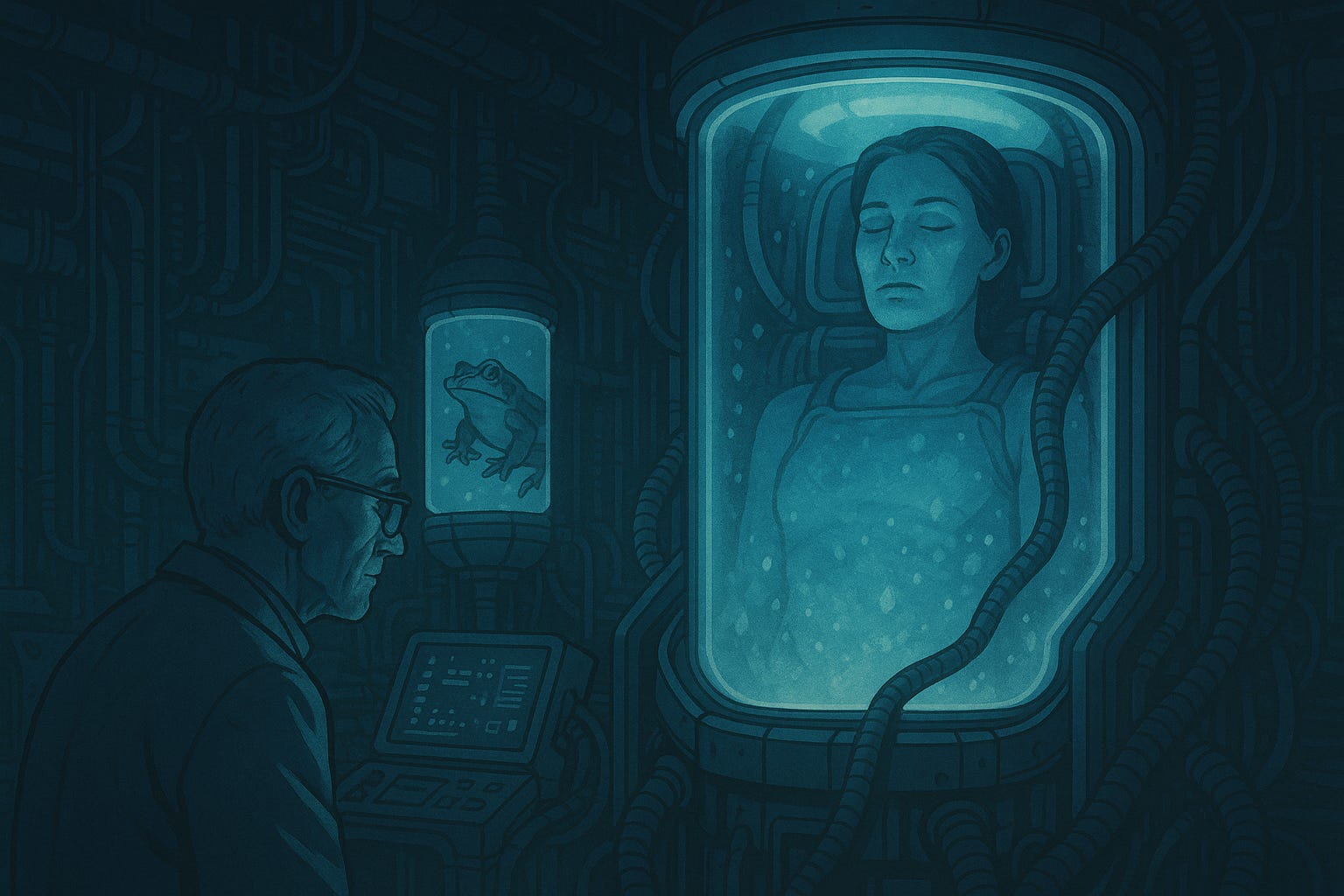
1. The Frog in the Freezer The first time I saw a wood frog thaw back to life, I nearly dropped the microscope. It was a field lab in Fairbanks, Alaska. A plastic shoebox full of peat moss, a digital thermometer sunk in the dirt, and a small, unremarkable amphibian with a faint rust stripe down its side— Rana sylvatica . I was an undergrad tagging along on a grad student’s project.




